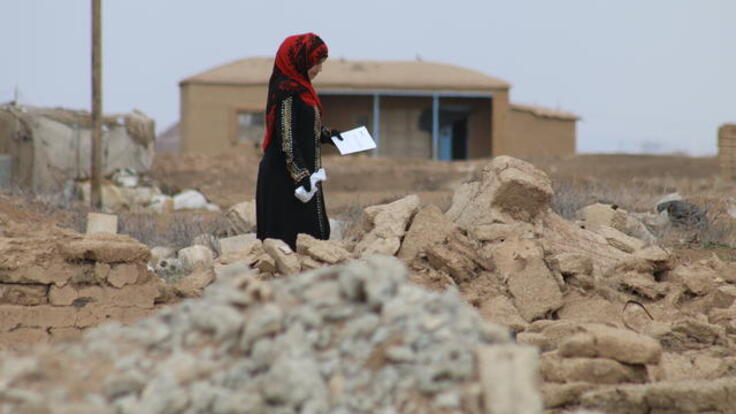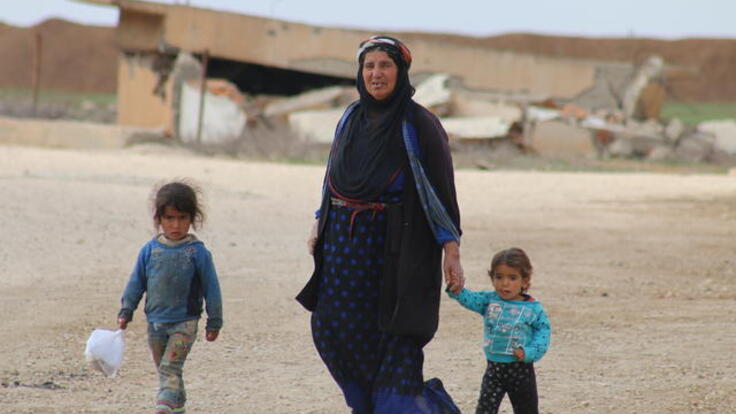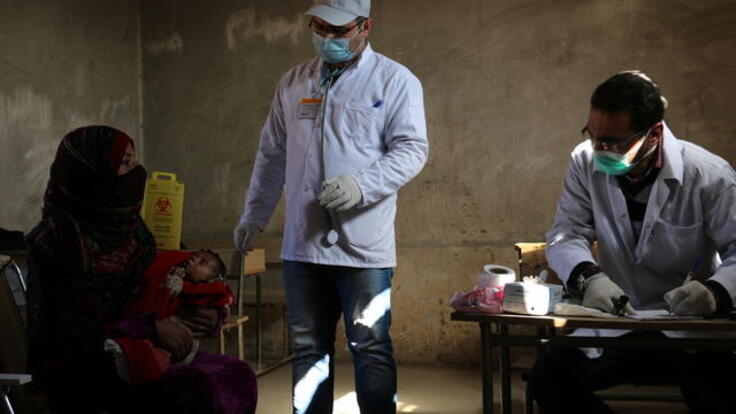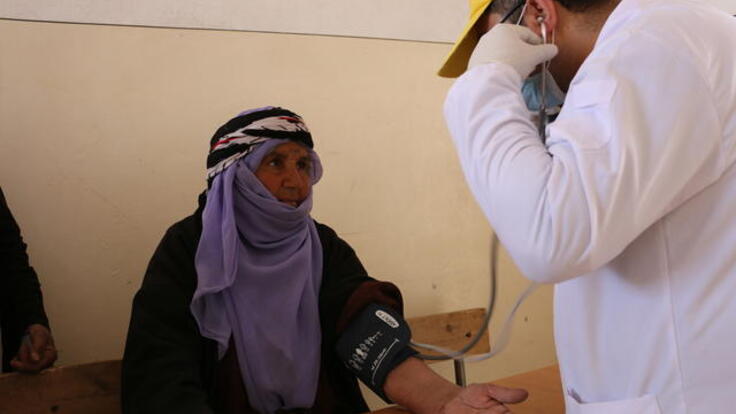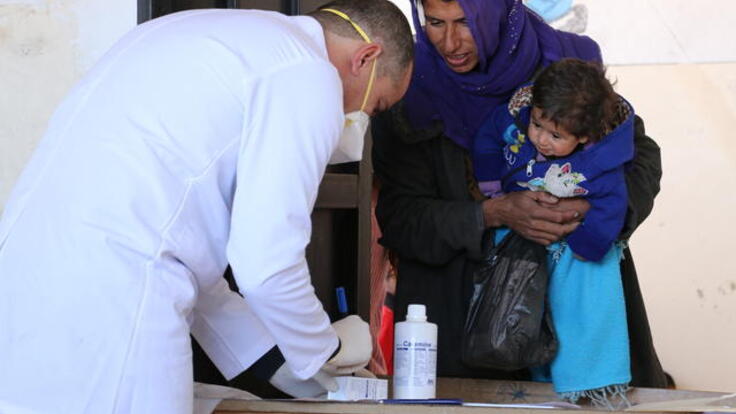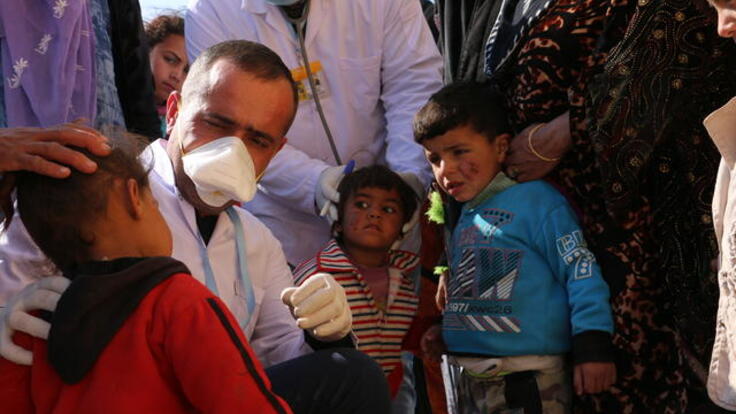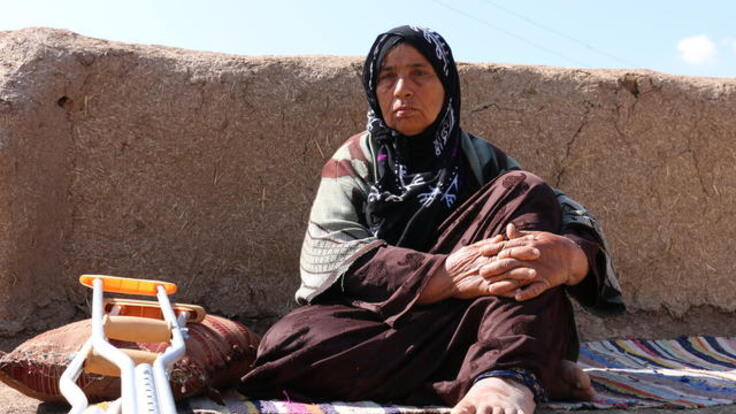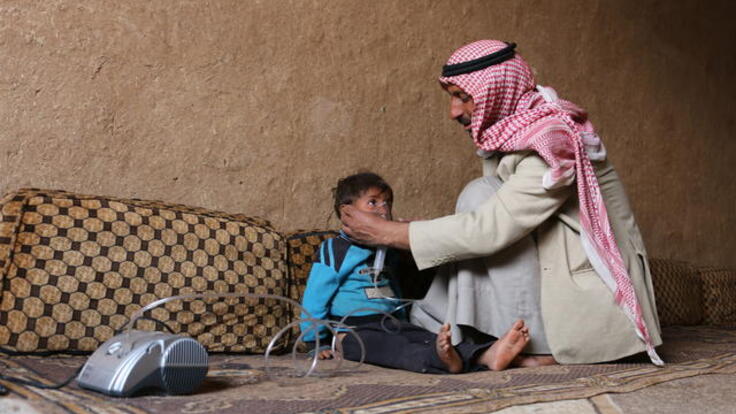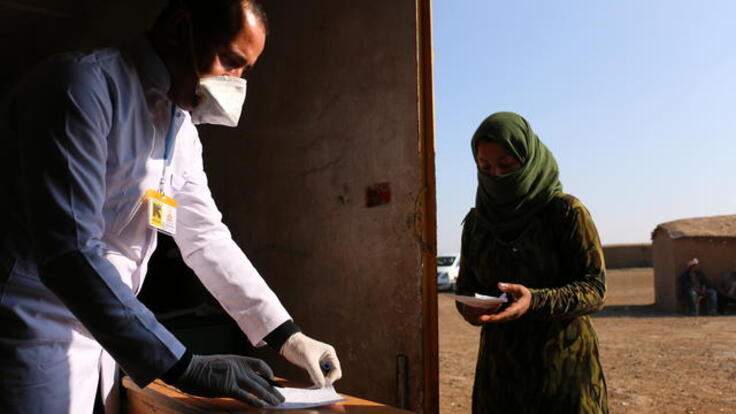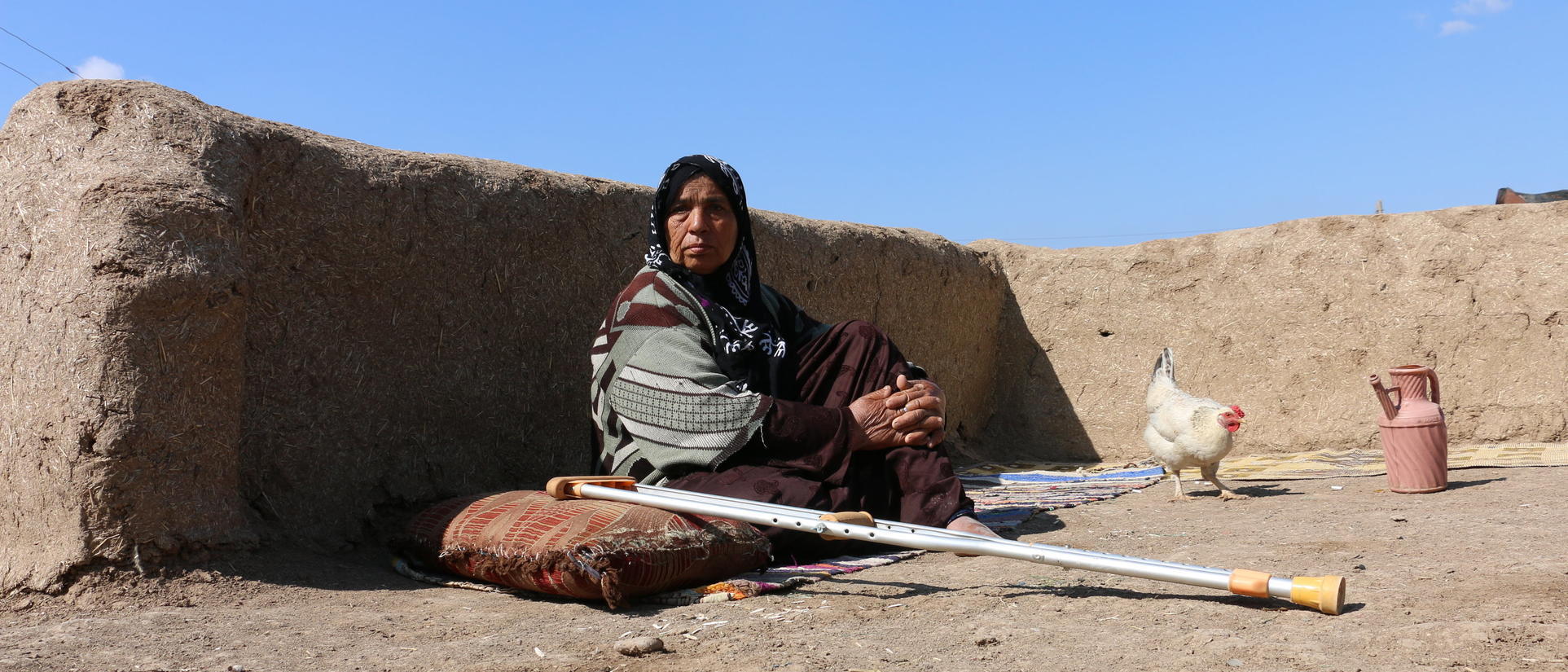
Miriam*, 65, spends her days sitting on a floor mat in her brother’s home, massaging her swollen arms and legs. She lives in a village set among sweeping green fields in northeast Syria. When war descended over two years ago and armed fighters closed in, her family fled. They returned late last year after local authorities secured the area, but at that point, Miriam could barely walk.
“For two years, we moved between villages. We stayed in one place until fighting started. Then we left again.” Miriam sighs and rubs her tingling foot. “I tried to take care of my diabetes. Sometimes I even got free medicine. But it just got worse.”
Diabetes shouldn’t have become a disability for Miriam.
Diabetes can be managed. It’s a chronic disease, marked by the body’s inability to either produce or effectively use insulin to control blood sugar levels. The key to staying healthy? Maintaining consistent blood sugar over time with regular monitoring and medication. But forced from her home and moving for two years, Miriam’s routine was shattered.
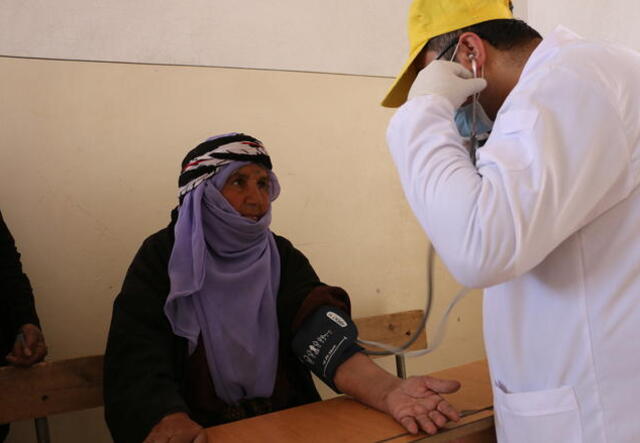
“When the gun battles started, we went to another town and lived in an old school,” explains Abdullah, Miriam’s brother. “Life there was very bad. Miriam’s health deteriorated a lot. Medications were sort of available, but not all the time. We never had enough money.”
Left unchecked, diabetes can lead to blindness, damage to extremities requiring amputation, and kidney failure. Miriam’s illness and the war also cause incredible stress on the family as Abdullah struggles to provide her with round-the-clock care. He and his 10-year-old daughter Amal are Miriam’s primary caregivers.
In the morning, Amal helps Miriam use the bathroom,” Abdullah says. “We give her breakfast and medicine. We are with her day and night, helping her eat, move, take her medication.” He runs his hands through his thinning hair and over his face. “Amal had to leave school to help my sister.”
According to the World Health Organisation, 1 out of every 10 Syrians has diabetes. That’s 1.8 million people forced to manage their condition in a war zone.
Before conflict erupted, Syria had a network of clinics specialising in diabetes care. Today, most health infrastructure is in ruins, including the few facilities serving rural areas. Oral medication and insulin, once free, can now cost $25 a month or more. Unreliable electricity and refrigeration have rendered much of the insulin supply useless. International Rescue Committee staff say that some families bury insulin in the ground to keep it cool.
“The destruction in these villages is massive, and so is the damage to people’s health,” says one IRC doctor. “Try managing a chronic disease when you’ve lost your home, your job, and are struggling to find safe shelter and food—it’s impossible. Our mobile clinics are providing some of the first health care and medication people have had in over two years, free of charge.”
Funded by EU humanitarian aid, the IRC deploys mobile teams—each with a doctor, nurse, midwife and pharmacist—to provide primary and reproductive care to Syrian villages. One team comes to Miriam’s village twice a month, using classrooms in a crumbling school to conduct exams and dispense medications. Miriam is one of 265 patients with diabetes in this rural area who receive medication, blood sugar monitoring and home visits from the IRC.
“The clinic has been coming here for four months,” says Miriam. “They give me my pills and visit me at home.” To build trust with families and improve their care, IRC community health workers make regular home visits to provide health education and psychological support. They monitor Miriam’s blood sugar, and help her family track her medication. And they listen to Miriam talk about the “nightmare”—returning after two years to find her house completely destroyed.
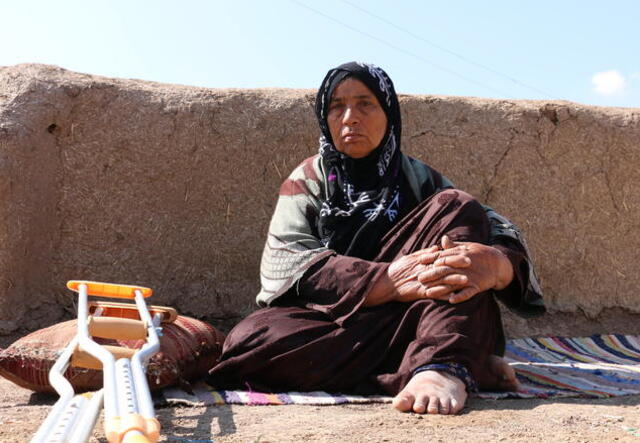
Restoring health is a slow process, especially for a patient like Miriam who has such advanced diabetes. She needs more than just medication to weather her disease and the aftermath of war. But with EU aid, the IRC is filling a critical gap in care for Syrians with diabetes, as well as those with heart disease, asthma and other chronic conditions. Mobile services provide new connections and new hope for villagers.
“I dream about doing all of the activities I love to do,” says Miriam. “But at least people come to visit me. I am so grateful for what you are doing.” She smiles at the IRC community health worker who’s come to see her this morning.
“I hope I can get stronger. I hope the village gets stronger, too.”
The International Rescue Committee works across Syria, providing services that improve family health and economic wellbeing, civilian safety, and children’s education and stability. Supported by European Union Civil Protection and Humanitarian Aid, the IRC reaches thousands of patients via clinics and mobile teams with primary and reproductive care, essential medicines and health education.
